◯ LGBTIQ// 性の多様性 ― LGBTIQを語る男性、女性、ホモ・ヘテロセクシャル 消える境界線
2017-11-28 04:47:57
LGBTIQRecognising diverse sexual identities and experiences
More than ever, today’s younger generations are refusing to be defined by a binary view of sexuality. And although the acronym has expanded to recognise this, people who identify as being part of the LGBTIQ community in Switzerland remain targets of violence and discrimination.
Expert on issues of gender and equality, Caroline Dayer, explains why the very existence of the LGBTIQ community remains fundamental to fighting against social isolation and for equal rights.
swissinfo.ch: Queer, pansexual** or asexual; young people especially are using new terms to define their sexual orientation or identity. Why?
Caroline Dayer: The appearance of these terms corresponds to the current new reality by which the diversity and fluidity of experiences young people are having is shattering binary ideas which, by the way, are very western. Such people are no longer limited by a bi-categorisation by which masculine and feminine, or hetero and homo, are separate and impermeable categories. So, these words are born from a need to define oneself in line with one’s experiences, because it is necessary to be able to define oneself before being able express oneself to others.
+ Where does Switzerland stand on gay marriage?
+ How are rainbow families perceived in the Swiss media?
swissinfo.ch: In this context, is the LGBTIQ acronym still important for reclaiming the rights of sexual minorities?
C.D.: Yes, because people who refer to themselves with this acronym are still targets of discrimination and violence, in Switzerland as in the rest of the world. So its use enables us to highlight questions of inequality but also to bring to light some existences which are often kept in the cupboard.
However, it is necessary to be vigilant because behind LGBTIQ are journeys and experiences that are extremely diverse and which cannot be assimilated.
These letters relate to different things. When we speak of people who are lesbian, gay and bisexual, we are making a reference to an emotional and sexual orientation. The term trans* evokes the question of gender identity, while intersex concerns biological sexuation levels.
Finally, the Q of queer is associated both to a political movement and a theoretical perspective. Queers call into question social categorisations which relate to questions of power. This is also paradoxical because when you add a letter to the acronym you in fact create a new category.
But queer also signifies ‘questioning’, highlighting the fact that, during their lives, some people question themselves about their sexual and emotional orientation and/or about their gender identity.
swissinfo.ch: So the acronym groups together very different identities and claims. What is it that holds this community together?
C.D.: In different research interviews that I have conducted over more than 15 years, I find that there are two questions which remain salient for these people: who to talk to and who to identify with. Still today, in 2017, this is not a matter of course. For one part, the existence of a community can facilitate the search for answers and the construction of oneself.
For another, these people share the experience of homophobic and transphobic abuse, which is very widespread. The collective dimension is created from this violence to fight against the stigmatisation which isolates people. The associative fabric therefore plays an essential role.
swissinfo.ch: Where does Switzerland sit in relation to defending the rights of the LGBTIQ community as compared to our neighbours like France, Germany or Italy?
C.D.: In the legal sense, Switzerland is very behind, as much when it comes to protecting equality.
Germany has just opened marriage to same-sex couples and in a record time. Switzerland, however, only has registered partnerships, which do not confer the same rights as marriage and which are reserved only for homosexuals. This last point is problematic; numerous people reject the registered partnership because it forces them to come out in an official and unwanted manner every time they fill out a form.
What does LGBTIQ signify?
The acronym LGBTIQ is used to designate people who are lesbian, gay, bisexual, transgender, intersex and queer. With time, other terms have also appeared to define diverse sexual orientations and gender identities.
Behind these letters are life stories that are sometimes simple, sometimes torturous, but all unique. For this reason, swissinfo.ch has decided to publish a portrait to illustrate each term which makes up the acronym. The series will be part of an important and current debate in society and will appear in the coming weeks on swissinfo.ch.
end of infobox
We can, however, reveal that Switzerland is in the process of moving in certain areas, notably on the question of adoption and the protection of people who are homosexual, bisexual or trans*. For example, homosexual people will be able to adopt the child of their partner from 2018 and a process is under way to extend the anti-racial criminal code to discrimination based on sexual orientation and gender identity.
swissinfo.ch: You have spoken of violence and discrimination, what is the situation like in Switzerland?
C.D.: Whether it is in a school or professional context, in the street, on online social networks or within the family, situations of discrimination, rejection and violence are still very present today.
Compared to other types of discrimination, the particularity of homophobia and transphobia is that the rejection can come from within the family itself. If young people do not have other means of protection, such as a circle of friends who they can talk to, they can find themselves in a situation of extreme vulnerability. It is part of the reason why this kind of discrimination, coupled with silence and the feeling of rejection, that the rate of attempted suicide is much higher amongst LGBTIQ people than amongst others.
swissinfo.ch.: Can a homophobic or transphobic situation within the family influence the construction of identity at an adult age?
C.D.: If the images or discussion available to young LGBTIQ people are either devaluing, emptiness or nothing, the construction of their identity could be more difficult.
When we ask young people why they don’t want to speak about their questions about their sexual or emotional orientation, or their gender identity, they most often mention their fear of being rejected by their families. Many people have cut off links with their families, either because they have been rejected or because the subject has become an enormous taboo from the moment they mentioned it. It is a recurring situation. Moreover, most of the time, the people in the family considered to be the most important are often the last to be informed.
However, we shouldn’t forget that there are also a lot of families where dialogue is possible. So the family can either be hell or a refuge. Speaking with loved ones is an excellent way to break down prejudice and move forward. However, people must first have a safety net outside of the family to ensure they don’t fall into a situation of isolation and vulnerability.
swissinfo.ch: Is our society ready to consider love in its universal form, without considering gender and orientation?
C.D.: That’s the ideal goal. But for the moment we see that questions of sexuality and gender are still raised in relation to power and hierarchy. Young people continue to hear that certain relations are better or more legitimate than others.
We must continue working to make things evolve, especially in relation to protection in the school environment. Children don’t see why a white person and a black person or two people of the same sex can’t love each other and get married. We learn to become sexist, homophobic, transphobic or racist. But the good news is that we can fix it.
**pansexual: characterising individuals who are potentially attracted sexually or emotionally by people of all sexes and genders.
Caroline Dayer
Born in 1978 at Hérémence (canton Valais), Caroline Dayer studied at the faculty of psychology, science and education at the University of Geneva. After completing a doctorate on discrimination and equality, she was a researcher and teacher for 13 years.
Currently, she works for canton Geneva as an expert on questions of violence, discrimination, gender and equality. She is the author of two books:
The Power of Insult. Guide to the Prevention of Violence and Discrimination, 2017 Aube
Under the Paving Stones, Gender. Hacking Sexism, 2017 Poche (2014), Aube.
性の多様性 ― LGBTIQを語る男性、女性、ホモ・ヘテロセクシャル 消える境界線
レズビアン、ゲイ、バイセクシャル、トランスジェンダーに属する人々をその頭文字を取って「LGBT」と呼ぶ。「こういった性的指向や性的なアイデンティティーを持つ人は、今でも暴力や差別の対象となり社会的に孤立しやすい」とジェンダー問題の専門家、カロリン・ダイヤーさんは言う。そして「男か女か」という2極性に縛られない新たなグループが加わり、今では「LGBT」が「LGBTIQ」に拡張された。
スイスインフォ: クィア(広く性的マイノリティを表す)、パンセクシャル(あらゆる人を愛する全性愛者)、アセクシャル(他者に対して恋愛感情を抱かない無性愛者)。近年、特に若者の間で性的指向や性的アイデンティティーを定義する新しい用語が次々に生まれています。これはどんな欲求を満たしているのでしょうか。
カロリン・ダイヤー: 新しい概念が次々に生まれるのは、現実の姿が変わってきたことを反映している。性生活に多様性や融通性が生じた結果、これまで欧米で長らく一般的だった古典的な考え方が揺らぎ始めた。現代の若者は、性的指向や性的アイデンティティーに二つの相反するカテゴリーしか認めない見方を受け入れない。つまり、男か女か、ホモセクシャルかへトロセクシャルかといった、互いに接点がない、基本的に別々の存在のようにカテゴライズすることを嫌がるのだ。そしてどのカテゴリーにも属さない自分の存在を定義するために新しい用語が生まれてきた。社会のネットワークを築く前に、人は皆、自分は何者なのかを知らなくてはならないためだ。
LGBTIQとは?
LGBTIQとは女性同性愛者(Lesbian)、男性同性愛者(Gay)、両性愛者(Bisexual)、トランスジェンダー(Transgender)、インターセクシャル(Intersexual)、クィア(Queer:広く性的マイノリティを表す)の英語の頭文字を並べた言葉。またこの他にも性的指向や性別の多様性を定義する他の表現も生まれてきている。
このアルファベット文字の陰には数多くの人間模様が隠されている。時には胸の痛むような、時にはシンプルなストーリーが。そしてそのどれも唯一無二の物語だ。スイスインフォは頭文字が示す一つ一つの概念について連載でポートレートをお届けする。LGBTIQと呼ばれる人々の生の声を伝え、彼らの夢、勝ち取ったこと、そして社会に対する要求を語ってもらった。このシリーズが、近年ようやく討論されるようになってきたこのホットなテーマについて考えるきっかけになれば幸いだ。
インフォボックス終わり
スイスインフォ: 頭文字を並べたLGBT、あるいはLGBTIQという用語は、性的マイノリティの要求に目を向けるという意味で重要ですか?
ダイヤー: はい。この頭文字一つ一つに当てはまる人々は、今でも差別や暴力の犠牲になっている。これはスイスだけでなく世界中で言えることだ。この用語を使うことで異なる性別を平等に扱うことに関心を持ち、社会の隅に置かれた人々にも生きた声を与えるきっかけになる。
同時に、ひと言にLGBTIQと言っても、その背後にはさまざまな人と人間模様が隠れているのを忘れてはいけない。一人一人、全く異なるストーリーを持っている。
これら頭文字はまた、複数のカテゴリーを表している。レズビアン、ゲイ、バイセクシャルは性的・恋愛感情的指向を表しているが、トランスジェンダーは性的アイデンティティーを表し、インターセクシャルは生物的な性別(が普通の男性、女性と違うこと)を表す用語だ。
クィアの頭文字Qは本来、政治的な運動やその理論を表す用語で、基本的に社会のあらゆるカテゴリーに反発するグループを指す。そういう意味では、敢えて自分の所属するカテゴリーを作りその頭文字を取るというのは矛盾している。
Qは他にも「問いかける(questioning)」の頭文字でもある。そのため、Qという文字は同時に「人生の過程で自分の性的指向に疑問を持つ人がいる」と示唆している。
スイスインフォ: LGBTIQという頭文字は、全く異なるさまざまなカテゴリーを一つにまとめた用語ということですね。このグループを結び付けている物は何ですか?
ダイヤー: 研究に携わりながら、かれこれ15年もこのグループの人たちとの対話を続けている。それで分かったのは、彼らは常に軸となる二つの疑問を持っていることだ。一つは「誰と話をしたらよいのか」、そしてもう一つは「自分を誰と重ね合わせたらよいのか」という疑問だ。2017年になった今日でも、その答えを見つけるのは難しい。
自分が属する共同体があることで、自己形成は楽になるかもしれない。反対に、ホモフォビアやトランスフォビアを体験する人も多い。こういった態度は現在でも一般的に見られることだ。この種の体験は見えない暴力も含め、悪評に立ち向かうために団結する原動力になる。その際、共同体が中核的な役割を果たすだろう。
引用終了
スイスインフォ: LGBTIQの人々に対する暴力や差別について言及しましたが、スイスの現状はどうですか?
ダイヤー: 彼らへの差別、疎外、そして暴力は学校や職場で常に存在する。同じことが街中やソーシャルネットワーク、そして家族間でも言える。
他の差別問題と比べてホモフォビアやトランスフォビアが特別なのは、自分の家族からも差別を受ける恐れがある点だ。その場合、友人など保護してくれる人が他にいない若者は、非常に危険な状況に陥る。
LGBTIQの自殺率が平均以上に高いのは、この種の差別を受け、若者が社会的に孤立した状況へと追い詰められている背景がある。
スイスインフォ: 自分の家族にホモフォビアやトランスフォビアがある場合、人格形成にどういった影響を及ぼしますか?
ダイヤー: 常に屈辱を受ける状況に置かれているLGBTIQの若者が健全に人格を形成するのは難しい。なぜ自分の性的指向や性的アイデンティティーに対する疑問を話さないのかと尋ねると、家族に疎外されるのが怖くてできないと答える人が圧倒的に多い。親に疎まれている気がして、親との関係を断った人も多い。あるいはタブーを犯してこのテーマを持ち出したせいで、親との縁が切れた人もいる。特にこれはよくあるパターンだ。家族の恥になるのを恐れるあまり、親に話すのは最後まで後回しになるケースが大半だ。
しかし、話し合いの場を設けられる家庭も潜在的に多く存在することを忘れてはならない。自分の家は地獄にも、逃げ場にもなる。偏見をなくすためにも、両親に打ち明けるのは重要なことだ。但し、孤立や身の危険を避けるため、自分を保護してくれるネットワークを家族以外にも持つことも大切だ。
スイスインフォ: 我々の生きる現代社会は、性的なアイデンティティーや性的指向にとらわれない普遍的な愛を受け入れる準備ができているのでしょうか?
ダイヤー: 理想的な社会なら、恐らくそうだろう。しかし実際は、まさにこういった要素が力関係とヒエラルキーを支配している。若者は、ある種の「関係の形」の方がより社会に受け入れられている事実を直観的に察している。
社会が更に発展するためにも、このテーマについて話し合うことはとても重要だ。特に学校では何らかの防止策が必要だ。愛し合う白人と黒人、または同性同士が何故結婚できないのか子どもには理解できない。そして性差別、ホモフォビア、トランスフォビアは生まれつきではなく、そういう人間に作られるのだ。唯一の救いは、誰でも考えを改められるということだ。
カロリン・ダイヤー
1978年ヴァレー州のエレマンスに生まれる。心理学と教育学をジュネーブ大学で学んだ後、差別と平等に関する論文で博士号を取得。13年間この分野で講義と研究を行った。現在、ジュネーブ州の委託で暴力、差別、ジェンダーや平等といった問題のアドバイザーとして活躍。暴力防止と性差別に関する著書を2冊執筆した。
インフォボックス終わり
(独語からの翻訳・シュミット一恵)












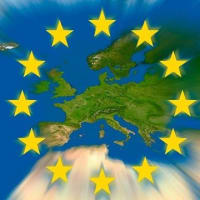
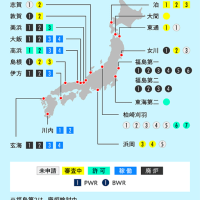
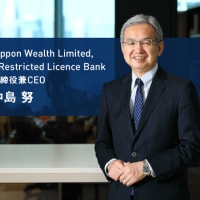




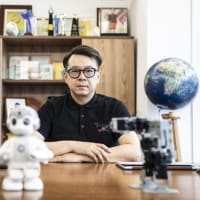
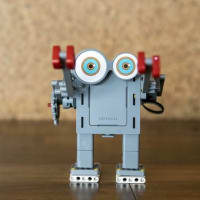

※コメント投稿者のブログIDはブログ作成者のみに通知されます